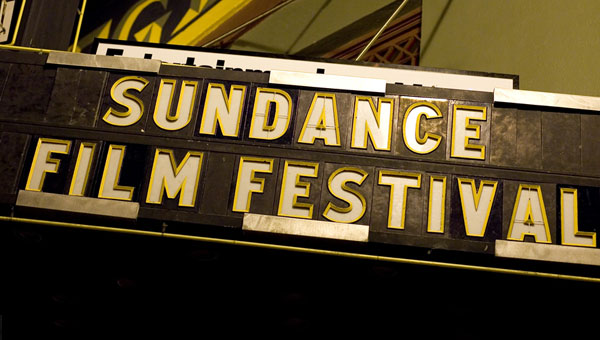@the_blackhouse
Originally, I was going to do a quick post on the black filmmakers at Sundance 2012, which starts on January 19 and runs through the 29th. However, after some Googling, I found out that there are 21 black films showing. That’s 21 films if you include not only directors, but subject matter and cast. That’s what the Blackhouse Foundation–whose mission is to “expand opportunities, increase knowledge & provide support for Black filmmakers in the US & abroad via partnerships w/the world’s most prominent festivals”–has provided. We’ll get to the full list in a minute, but here are five filmmakers you might want to keep an eye on:
Sheldon Candis
According to Filmmaker Magazine, the Baltimore-born, LA-based filmmaker’s project Learning Uncle Vincent LUV, “is the film arising from those childhood memories — spiked with a healthy amount of imagination.” The film stars Common, with supporting roles by Danny Glover, Dennis Haysbert and Charles S. Dutton. The filmmaker describes the film in this way: “It’s about a young child being exposed to violence for the first time and coming of age through the realization that his once hero is a bad person,” Candis says. “In the course of one day, a boy receives his rite of passage into manhood through the relationship with his recently released from prison uncle. It’s a dysfunctional love story with a tragically optimistic ending. Every boy searches for a father figure — not everybody finds the right one.”
Ava DuVernay

It’s been a busy year for Ava DuVernay. Not only did she make a film I Will Follow, but with it she also launched a distribution initiative, AFFRM, through which she was able to release her film as well as Alrick Brown’s Kinyarwanda. Add to that the fact that she was able to finish a second film, Middle of Nowhere, that will be screened as part of the Dramatic Competition. Middle of Nowhere tells the story of a woman who struggles to maintain her identity and her marriage in the face of her husband’s incarceration.
Terence Nance
Nance was born and raised in Dallas, Texas and comes from a family of musicians. According to his bio, he began writing and learning to play instruments at a young age by sitting in with his uncles during studio sessions, some of whom played with noted artists Lucky Peterson and James Ingram. He came to NYC as a visual arts student. Thinking about his overall body of work thusfar, he writes, “The work that I have been doing for the last few years is at its base self portraiture about vulnerability, the fragility of perception, and self awareness. Using performances, song, environments, video, re-enactments of events, relationships, and dreams, I attempt to reconstruct my identity in moving images.” For his Sundance debut, Nance uses a mixture of live action and animation so that An Oversimplification of Her Beauty can more fully explore “the relationship between Terence and a lovely young woman (Namik Minter) as it teeters on the divide between platonic and romantic.” Also check out his short film for Pharoah Monch’s “Clap”.
Sam Pollard

Pollard is best known as an editor, having cut many of Spike Lee’s films (Mo’ Betta Blues, Jungle Fever, Clockers, 4 Little Girls), as well as Shola Lynch’s Chisholm ’72: Unbought & Unbossed, to name only a few of the 31 films he’s had a hand in. He also has over 20 producer credits under his belt. Slavery By Another Name is in the Documentary Competition. According to its blurb: “As slavery came to an end with Abraham Lincoln’s Emancipation Proclamation, a new system of involuntary servitude took its place with shocking force, brutalizing, terrorizing and ultimately circumscribing the lives of hundreds of thousands of African Americans well into the 20th century.”
Kibwe Tavares
Coming to Sundance from Brixton, England, Kibwe Tavares (left) had an unusual journey to filmmaking, having been trained in architectural engineering. “The film follows the trials and tribulations of young robots surviving at the sharp end of inner city life, living the predictable existence of a populous hemmed in by poverty, disillusionment and mass unemployment.” It is based on the events surrounding the 1981 riots between Brixton residents and police.
The full list of black films at Sundance is taken from a list compiled by The Blackhouse here.
Additional links:





